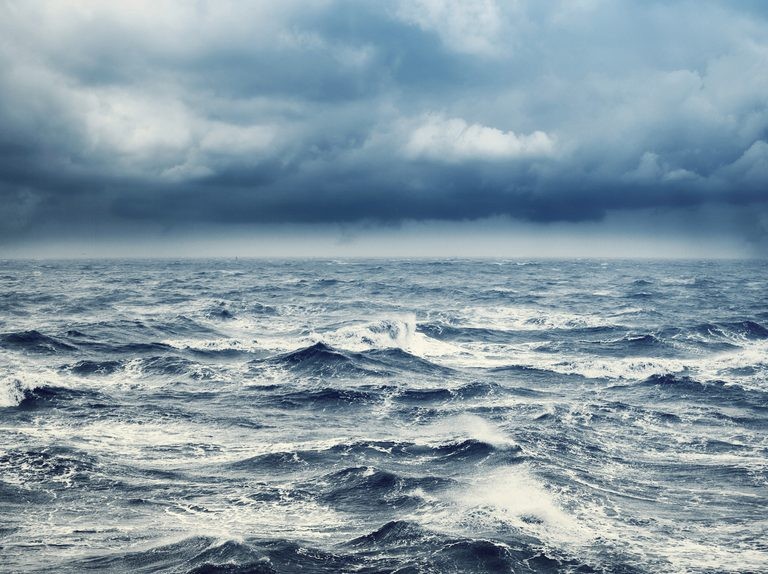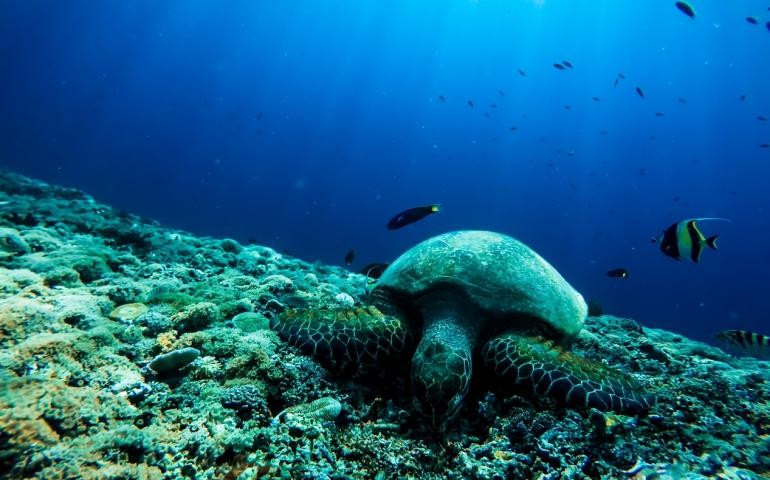
BBNJ Agreement - a new step in international law and future prospects (Part I)*
Latest
 |
| BBNJ Agreement - a new step in international law and future prospects: Recognizing the importance and urgency of preserving and sustainably using marine biodiversity in sea areas beyond national jurisdiction, the international community strives to take collective actions. (Photo: Getty Images) |
Important international waters
An area beyond 200 nautical miles, not under the jurisdiction of any country, international waters account for two-thirds of the world's seas and oceans and cover nearly 50% of the earth's surface. In this place, rich and diverse natural resources, including living and non-living things, are concentrated, bringing great benefits to humans.
International waters play an important role not only in traffic and transportation but also in national, regional and global economic development, contributing to the sustainable development of coastal communities.
| The BBNJ Agreement aims (article 2) to ensure the conservation and sustainable use of marine biological diversity of areas beyond national jurisdiction, for the present and in the long term, through effective implementation of the relevant provisions of the Convention and further international cooperation and coordination. The Agreement emphasizes the principle of taking into account the needs and priorities of developing countries, creating great advantages for Viet Nam and developing countries in building and enforcing a fair and equitable maritime legal order. |
However, this is also an area that has been largely unexplored by humans. Only a few countries and organizations mastering science and technology have the capacity to explore and exploit those remote and deep seas.
Recognizing the importance and urgency of preserving and sustainably using marine biodiversity in sea areas beyond national jurisdiction, the international community strives to take collective actions, especially in the context of increasing risks of marine environmental degradation that have serious impacts on climate change on seas and oceans.
 |
| International waters play an important role not only in traffic and transportation but also in national, regional and global economic development. (Photo: marinetraining.eu) |
"Sweet fruit" after almost 2 decades
The process of negotiating legally binding documents on marine biodiversity in areas beyond national jurisdiction has been going on for nearly 20 years.
On March 4, 2023, in New York, US, the United Nations Inter-Governmental Conference completed the negotiation process on international legal documents on marine biodiversity in waters beyond its national jurisdiction.
On June 19, 2023, the Inter-Governmental Conference agreed to approve the Agreement under the United Nations Convention on the Law of the Sea 1982 (UNCLOS 1982) on the Conservation and Sustainable Use of Marine Biological Diversity of Areas beyond National Jurisdiction (BBNJ Agreement).
On August 1, 2023, the United Nations General Assembly held a plenary session to pass the Resolution on the BBNJ Agreement with the support of 150/193 member countries.
From September 20, 2023, the Agreement will be opened for signature within two years and will take effect 120 days after it is ratified, approved, accepted or acceded by at least 60 member countries.
The BBNJ Agreement, including the Introduction, 12 Parts with 76 articles and two attached Appendices, aims to ensure the conservation and sustainable use of marine biodiversity for the present and long term, through the effective implementation of the provisions of the 1982 United Nations Convention on the Law of the Sea and strengthening international cooperation.
The BBNJ Agreement regulates four important issues in ensuring marine biodiversity including: marine genetic resources; area-based management measures and tools (hereinafter referred to as ABMT), including marine protected areas (MPAs); marine environmental impact assessment (EIA) and marine capacity building and technology transfer.
| Stating that the adoption of BBNJ is a miracle, President of the 77th United Nations General Assembly Csaba Korosi said that countries have together laid the foundation for better management and protection of the oceans for future generations. The passage of BBNJ not only affirms the victory of diplomacy and multilateralism, but is also a historic step against trends of destroying oceans, following the UNCLOS 1982 in building and enforcing legal order on seas and oceans for the sake of peace, cooperation, development and clean environment. |
| UNCLOS regulates on freedom of fishing and freedom of marine scientific research on the high seas, but there are no regulations on the division of benefits from genetic resources collected from the sea, and there is no mechanism in coordinating and controlling activities at sea to protect this gene source from decline and depletion. Currently, only developed countries and private companies with leading marine technology and biotechnology and abundant financial resources are capable of collecting marine genetic resources and developing applications for their own profit. |
(*The article represents the author's own views)









